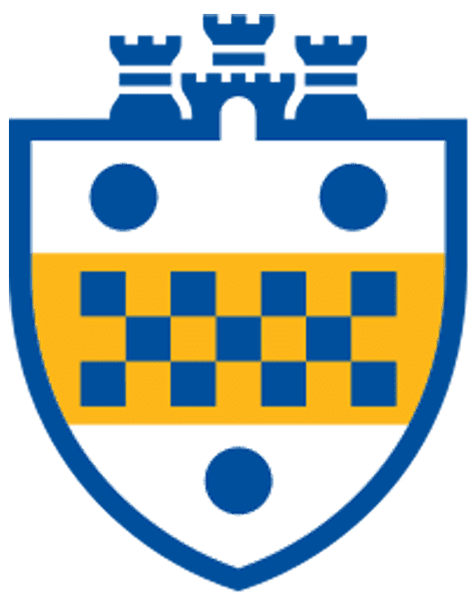Re-imagining What Works For Adult Learners of Color
Across the country, millions of Black, Hispanic and Latino, and Native American adults are working, caring for children and other dependents, and trying to provide the best possible quality of life for their families and for themselves. While sheer determination and persistence have paid off for some, enabling them to achieve greater social and economic mobility, many more have had their efforts to improve their circumstances impeded by racial inequities in our higher education, workforce, and economic systems.
In recent years, those challenges have gained further prominence, due in large part to the global pandemic and the resulting disruptions to our educational institutions and workplaces, particularly those with the highest representation of marginalized communities. Black and Hispanic Americans have experienced more widespread job and income loss than other racial groups.
Recognizing the urgency of this situation, Lumina Foundation is making significant investments in initiatives specifically aimed at improving educational attainment for adults of color, including the Racial Equity for Adult Credentials in Higher Education (REACH) Collaborative. Nearly 160 community colleges in states including California, Colorado, New York, North Carolina and Virginia are participating in the REACH Collaborative, creating academic pathways that acknowledge and address the needs and lived experiences of adult students of color.
REACH Framework
Adult learners of color are focused, ambitious, and resourceful. Implementing pathways, supports, and practices that celebrate and value Black, Hispanic and Latino, and Native American lived experiences restores and protects the focus, ambition, and resourcefulness these valuable students bring to their colleges and careers.
Credentials to Degrees Pathways
Too often, life gets in the way for adult students, forcing them to delay or abandon their studies altogether. On top of losing valuable time and money, they have nothing to show for their hard work. By stacking short-term credentials in a sequence that leads to an associate degree, students can start to make faster academic and career gains, allowing them to apply for higher-wage jobs more quickly, while continuing to grow their skills and work toward their larger goals. To be most effective, these pathways should be built to progress toward high-wage, high demand careers available in the same region as the college. Their speed and stackability are a necessary and practical response to the expensive stops and restarts adult learners of color have had to face for far too long.
Read the brief
Bundled and Sequenced Supports
Many adult students of color are managing a delicate balancing act of life responsibilities – one that could collapse at any time. Whether the issue is loss of financial resources, transportation, or childcare, finding the right help when things fall apart becomes one more hurdle. Adult students of color need proactive, holistic support that starts addressing their needs in and out of the classroom before they ever step foot in one. Combining academic supports, like tutoring, and non-academic or basic needs supports, such as food, transportation, or childcare, in a sequence that is designed to meet adult students’ needs at each stage of their college journey proactively eliminates barriers to success. It also increases the likelihood that these students will be able to meet the demands of school and their busy lives, even if issues arise.
Read the brief
Culturally Sustaining Practices
The traditional college-going experience was not designed with adult students of color in mind. Inequitable policies and practices, ranging from enrollment and placement processes to access to financial aid and student services, send an unintentional message to these students that they don’t belong and are not welcome in higher education. Culturally sustaining practices are designed to embrace students’ lived experiences and contribute to their sense of belonging in college. By replacing one-size-fits-all approaches with practices that acknowledge and account for students’ unique backgrounds, identities, or culture, colleges can help ensure their ultimate success in their chosen pathways.
Read the brief-
Credentials to Degrees Pathways
Credentials to Degrees Pathways
Too often, life gets in the way for adult students, forcing them to delay or abandon their studies altogether. On top of losing valuable time and money, they have nothing to show for their hard work. By stacking short-term credentials in a sequence that leads to an associate degree, students can start to make faster academic and career gains, allowing them to apply for higher-wage jobs more quickly, while continuing to grow their skills and work toward their larger goals. To be most effective, these pathways should be built to progress toward high-wage, high demand careers available in the same region as the college. Their speed and stackability are a necessary and practical response to the expensive stops and restarts adult learners of color have had to face for far too long.
Read the brief -
Bundled and Sequenced Supports
Bundled and Sequenced Supports
Many adult students of color are managing a delicate balancing act of life responsibilities – one that could collapse at any time. Whether the issue is loss of financial resources, transportation, or childcare, finding the right help when things fall apart becomes one more hurdle. Adult students of color need proactive, holistic support that starts addressing their needs in and out of the classroom before they ever step foot in one. Combining academic supports, like tutoring, and non-academic or basic needs supports, such as food, transportation, or childcare, in a sequence that is designed to meet adult students’ needs at each stage of their college journey proactively eliminates barriers to success. It also increases the likelihood that these students will be able to meet the demands of school and their busy lives, even if issues arise.
Read the brief -
Culturally Sustaining Practices
Culturally Sustaining Practices
The traditional college-going experience was not designed with adult students of color in mind. Inequitable policies and practices, ranging from enrollment and placement processes to access to financial aid and student services, send an unintentional message to these students that they don’t belong and are not welcome in higher education. Culturally sustaining practices are designed to embrace students’ lived experiences and contribute to their sense of belonging in college. By replacing one-size-fits-all approaches with practices that acknowledge and account for students’ unique backgrounds, identities, or culture, colleges can help ensure their ultimate success in their chosen pathways.
Read the brief
REACH Partners and Funders

Lumina Foundation
Lumina Foundation is an independent, private foundation in Indianapolis that is committed to making opportunities for learning beyond high school available to all. We envision a system that is easy to navigate, delivers fair results, and meets the nations's need for talent through a broad range of credentials.
Read More
ESG
Education Strategy Group is a mission-driven consulting firm that works with K-12, higher education, and workforce leaders to achieve greater impact. We work across sectors to move the needle on issues that are critical to improving student success and advancing equity.
Read More
University of Pittsburgh
The mission of University of Pittsburgh's School of Education is rooted in equity, justice, and innovation.Together, its community strives to: disrupt and transform inequitable educational structures, innovate and agitate for change, support the well-being of all learners, shape practice and policy, and forge engaged partnerships.
Read More
DVP-Praxis
DVP-Praxis is an action-oriented, culturally responsive, and equity-focused consulting firm providing formative and summative evaluation services, strategic facilitation and advising, and technical assistance and training to support efforts to inform implementation and measure impact across postsecondary education and training systems.
Read More
Friday
Friday is a mission-driven strategy and design firm focused on three intersectional areas we believe are critical to shaping the future: learning that helps us realize our potential, work that gives us the opportunity to apply our talents, and communities that connect us to something bigger than ourselves. Our team of strategists, educators, and creatives have joined the REACH team to distill the work of the collaborative into simple, compelling messages and to share those widely with the field.
Read MoreStay Updated
Join our email list to stay updated on the latest resources,
best practices, and impact stories from REACH states and colleges.
